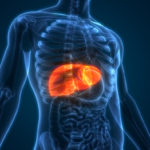
Previous
How Allergies and Chemical Sensitivities Impact Liver Health

Next
18 Little Known Facts About Liver Disease
Probiotics Help Support Liver Health
An imbalance of the digestive system’s delicate environment may be the underlying cause of many ailments, including fatty liver disease. Healthcare practitioners have long suspected that an abundance of certain intestinal bacteria renders its host vulnerable to disease. Discover how certain probiotics can support the liver by preventing fat accumulation in this crucial organ.
A recently released study by the Imperial College of London confirms that non-alcoholic fatty liver disease (NAFLD) is a condition likely caused by a gut imbalance. Other diseases touted to stem from an imbalance of microbes in the digestive tract include:
· Type 2 diabetes
· Obesity
· Heart disease
The Intestine’s Environment
By maintaining a constant temperature, the human gut provides an appealing habitat for many bacteria to grow. While the human body hosts trillions of bacteria known as normal intestinal flora, about 85 percent of these bacteria are considered harmless, some even beneficial. Our normal flora produces essential nutrients and generates by-products that help reduce the risk of developing certain cancers, digestive disorders, metabolic syndromes as well as liver and heart disease.
Aging and alterations in the intestine’s environment caused by antibiotic use disrupt the digestive system’s balance. In the case of antibiotics, the medicine kills everything living in the gut, including harmful bacteria as well as healthy intestinal flora. Killing off healthy flora allows harmful intestinal bacteria to gain proportional dominance. This relative imbalance of microbes in the gut sets the stage for a wide range of unhealthy conditions.
Research
A 2003 study by researchers at Johns Hopkins University looked at the connection between NAFLD and intestinal bacterial overgrowth. Researchers concluded that intestinal bacteria play a pathogenic role in hepatic insulin resistance and NAFLD.
Researchers at the Imperial College of London recently surmised that altering the intestine’s microbial environment could be effective in addressing insulin resistance. Researchers found that genetics is responsible for the presence of a specific type of microbe in mice intestines. This microbial excess predisposed mice to insulin resistance and NAFLD.
Researchers are hopeful that their observations of a mouse’s intestinal environment will translate into improving human health. When the mice in this study were fed a high fat diet, the microbes transformed choline, the nutrient essential for metabolizing fat, into methylamines. Scientists believe methylamines, which can only be produced by the microbes in the intestines, lead to insulin resistance. In addition, because choline is needed to transport fat out of the liver, altering choline metabolism leads to fat accumulation, and in turn, NAFLD. By changing the balance of intestinal microbes, it will be possible to reduce someone’s chances of becoming insulin resistant, developing NAFLD or suffering from associated problems.
Insulin Resistance
Insulin is a hormone released by the pancreas in response to elevated blood sugar levels. By pushing glucose out of the bloodstream and into the body’s cells where it is converted into energy, insulin keeps blood glucose levels in check. Cells that are insulin resistant lead to decreased energy production, resulting in fatigue. Insulin resistance prohibits glucose from entering the cells, causing it to accumulate in the blood. In an attempt to reduce glucose levels in the blood, the body signals the pancreas to produce and release more insulin.
High amounts of insulin in the blood increase triglycerides, which deposit fatty acids in the liver. In prolonged cases of insulin resistance, diabetes mellitus develops. Being overweight, living a sedentary lifestyle, eating a diet rich in sugar and fat and a preponderance of intestinal microbes all promote insulin resistance.
Probiotics
Probiotics is the term used to indicate specific digestive bacteria that produce healthy intestinal flora. Bacteria such as bifidobacteria, lactobacilli, bacteroides and fusobacteria are some examples of probiotics. Probiotics utilize beneficial bacteria to support the health of the gastrointestinal system by suppressing the growth of, or destroying undesirable bacteria. The regular use of probiotics can re-colonize the gastrointestinal tract with enough normal flora to prevent potentially damaging microbes from gaining dominance. Researchers from the Johns Hopkins 2003 study evaluating probiotic use to improve NAFLD suggested the inclusion of probiotics in a plan to prevent additional accumulation of fat in the liver.
Living with microbes in the gut is a normal occurrence in the human gastrointestinal system. However, the recent determination that an intestinal microbial imbalance encourages insulin resistance and NAFLD demonstrates that people concerned with these conditions should aim to preserve or build-up healthy intestinal flora. Used around the world for gastrointestinal health, the regular use of probiotics is the most acknowledged way to support a favorable balance of intestinal microbes.
Li Z, Yang S, Lin H, Huang J, Watkins PA, Moser AB, Desimone C, Song XY, Diehl AM, Probiotics and antibodies to TNF inhibit inflammatory activity and improve nonalcoholic fatty liver disease, Hepatology, February 2003.
www.emaxhealth.com, Altering Bugs in the Gut Could Tackle Non-Alcoholic Fatty Liver Disease, Imperial College of London, August 2006.









